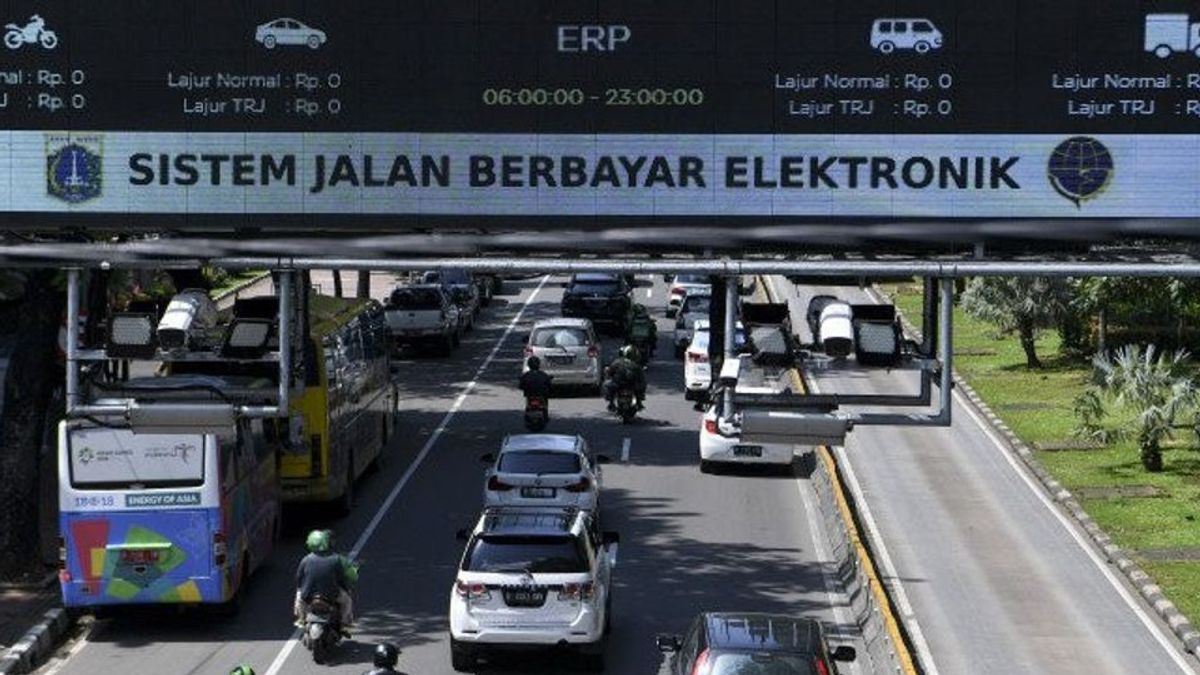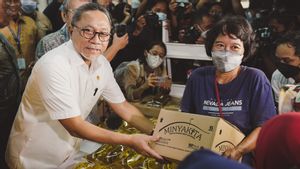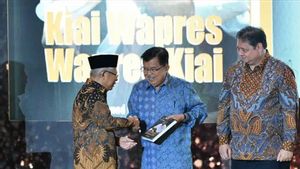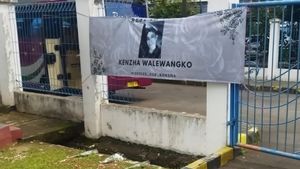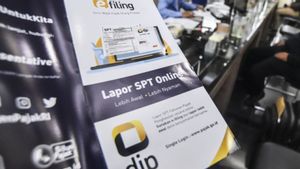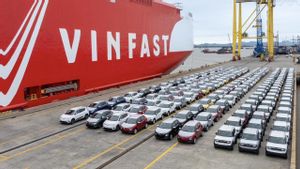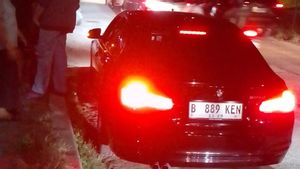JAKARTA - The problem of traffic congestion is increasingly congestion in Jakarta. The road area and the increase in motorized vehicles are behind it. Moreover, traffic jams make the whole of Jakarta lose money. From loss of time to money.
The DKI Jakarta government does not remain silent. During the Jokowi-Ahok administration, for example. They want to implement the Electronic Paid Road (ERP) as a solution. In fact, ERP has not been realized. Ahok's insistence on asking the government not only to think about the benefits of being the cause.
Congestion is a classic problem that hit the capital. That problem has even been felt since the 1960s. The causes are all kinds of things. The government's inability to provide solutions to unravel congestion, one of which is.
On the one hand, the DKI Jakarta government is unable to provide proper public transportation. On the other hand, the government has failed to issue the right policy to reduce Jakarta residents using private vehicles.
As a result, the streets of Jakarta are filled with private vehicles. While roads are no longer able to accommodate many vehicles at one time. that reason is for traffic jams during the day to hit all roads in Jakarta.
The Jakarta government has not remained silent. Various kinds of policies have been carried out since the time Ali Sadikin became Jakarta's number one person, even though it was far from expectations. The Jokowi-Ahok government also does not want to lose.
Those who have just been elected as Governor and Deputy Governor of DKI Jakarta in 2012 want to issue a new move against road congestion. The name of the Electronic Paid Road. Thejian is considered the most reasonable option to unravel the congestion of Jakarta.
ERP is considered to be able to make Jakarta residents switch to public transportation. The power of attorney is also preparing all kinds of facilities and sorting out the best ERP system. In mid-2040, there were already two companies conducting trials, namely Kapsch from Sweden and Q-free from Norway.
In addition to Sweden, Ahok revealed, several countries offer ERP technology to Jakarta, including Japan. The choice was then handed down, among others, by setting conditions, namely the existing system must be open. This means that if people enter from all regions, they can still.
The Swedish Ambassador to Indonesia, Ewa Polano, ensures that the ERP system technology brought by his country is the best worldwide. With this system, according to him, traffic flow will be smoother and generate revenue for collective transportation solutions, such as buses and trains. Ewa revealed this is a win-win solution," said Sutji Decilya in his report at Koran Tempo entitled Ahok Interest in ERP Technology from Sweden (2013).
The ERP plan was seriously discussed by the Jokowi-Ahok government. The plan was even rolled out when Jokowi was because he became President of Indonesia - handed over his position as a man whose real name was Basuki Tjahaja Purnama in 2014. ERP was also one of the projects that will be worked on seriously.
The trial went smoothly. However, the problem arose when ERP wanted to be operated in 2015. The DKI Jakarta government and related agencies especially taxation-- did not meet a common ground for ERP realization. Regarding the amount of the main tariff.
Ahok said the government did not have to profit from ERP. For him, ERP is only a tool to control the number of cars. The government's guns' so that people flock to choose public transportation modes for daily activities.
This desire makes Ahok want the ERP rate to be set to go up and down at any time. As long as the number of cars increases, the rate will increase. On the other hand, if the car has a little ERP rate, it will be lowered. He even repeatedly mentioned that ERP is not a toll road.
This is because the toll road was not built to reduce the number of private vehicles. The DKI Jakarta government has finally not implemented an ERP system in Jakarta. The decision was taken because the owner was aware that ERP's supporting facilities and infrastructure were not ready. Instead, the DKI Jakarta government chose to implement the Ganjil-Genap policy as an invitation.
When leading, Ahok did not hesitate to make arrangements for four-wheeled and two-wheeled vehicles. To overcome congestion on the public streets of DKI Jakarta, Ahok had the idea of using Electronic Road Pricing (ERP), which rates can go down and go up at any time. For him, ERP is only an instrument to control the number of vehicles passing on the road.
The ERP tariff will go down if there are not many passing vehicles, and will rise when there are quite a lot of passing vehicles passing by. This policy is not implemented. For the income office, the inconsistent ERP tariff will raise problems in the projected tax revenue that is carried out on an annual basis," said Rafif Pamenang Imawan in the book Already Senja in Jakarta (2020).
The English, Chinese, Japanese, Arabic, and French versions are automatically generated by the AI. So there may still be inaccuracies in translating, please always see Indonesian as our main language. (system supported by DigitalSiber.id)
